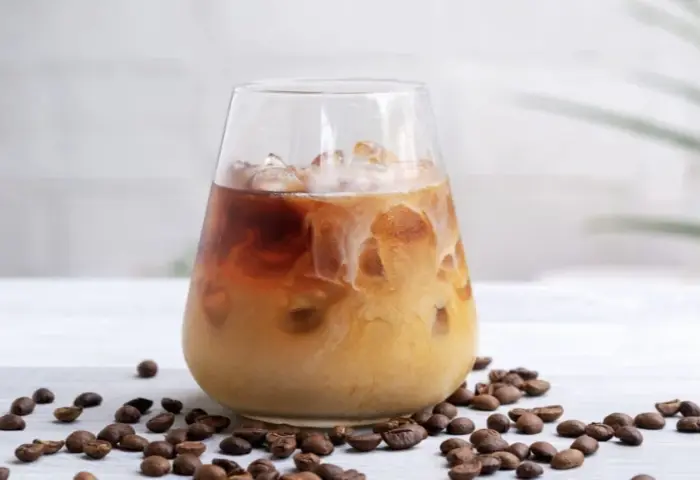Cold brew coffee has gained immense popularity in recent years, and one of its most celebrated qualities is its smooth, mellow flavor—completely devoid of the bitterness often associated with hot-brewed coffee. But why is cold brew not bitter? The answer lies in the chemistry of coffee extraction, the role of temperature, and the behavior of different compounds during the brewing process. By understanding these factors, we can appreciate why cold brew offers such a uniquely gentle taste.
The Science Behind Coffee Bitterness
Bitterness in coffee primarily comes from certain chemical compounds that are extracted during brewing. The most notable of these are caffeine and chlorogenic acids. When coffee is brewed with hot water, these compounds dissolve quickly and in large quantities, contributing to the sharp, sometimes harsh taste that many people associate with traditional coffee. However, cold brew coffee is made by steeping coffee grounds in cold or room-temperature water for an extended period, usually 12 to 24 hours. This slow, low-temperature extraction process significantly alters which compounds are released and in what quantities.
One key factor is solubility. Many of the bitter-tasting compounds in coffee, such as certain acids and alkaloids, are highly soluble in hot water. When water is heated, its molecules move faster, breaking down coffee grounds more aggressively and pulling out these undesirable flavors. In contrast, cold water extracts these compounds much more slowly and selectively. As a result, cold brew ends up with fewer of the bitter elements while retaining the sweeter, more nuanced flavors of the coffee beans.
The Role of Chlorogenic Acids
Chlorogenic acids are a major contributor to coffee’s bitterness. These compounds are naturally present in coffee beans and break down into quinic and caffeic acids during roasting and brewing. When coffee is exposed to high temperatures, these acids dissolve rapidly, creating a sharp, astringent taste. However, cold water does not extract chlorogenic acids as efficiently. Studies have shown that cold brew contains up to 67% fewer chlorogenic acid derivatives compared to hot coffee. This reduction directly translates to a smoother, less bitter cup.
Additionally, the breakdown of chlorogenic acids is influenced by oxidation. Hot brewing accelerates oxidation, which can further intensify bitterness. Cold brew, on the other hand, minimizes oxidative reactions, preserving a cleaner, more balanced flavor profile.
Caffeine Extraction and Bitterness
Caffeine is another compound often associated with bitterness, but its extraction behavior differs between hot and cold brewing. While it’s true that caffeine is slightly bitter, its solubility is temperature-dependent. Hot water extracts caffeine quickly, leading to a more pronounced bitter taste. Cold water, however, extracts caffeine at a much slower rate. Interestingly, despite the long steeping time, cold brew does not necessarily have less caffeine than hot coffee—it simply releases it in a way that doesn’t overwhelm the palate.
Moreover, caffeine’s bitterness is more noticeable when it’s accompanied by other harsh compounds, such as those extracted in hot brewing. Since cold brew lacks many of these additional bitter elements, the caffeine present doesn’t contribute as much to an overall bitter sensation.
The Impact of Roast Profile
The type of coffee beans used and their roast level also play a role in cold brew’s lack of bitterness. Lighter roasts tend to have higher acidity, which can sometimes translate to perceived bitterness in hot coffee. Darker roasts, while more intense, often develop sweeter, caramelized flavors due to the Maillard reaction and caramelization of sugars during roasting.
Cold brew is commonly made with medium to dark roasts because the extended steeping time helps extract the deep, chocolatey, and nutty flavors while avoiding the sharp acidity of lighter roasts. The absence of heat means that even dark roasts don’t release as many bitter compounds, resulting in a rich yet smooth taste.
pH Levels and Acidity
Another reason cold brew is less bitter is its lower acidity. Hot coffee tends to have a higher concentration of acidic compounds, which can contribute to a sour or bitter taste. Cold brew, in contrast, has a pH level closer to neutral, making it gentler on the stomach and the taste buds.
This reduced acidity is particularly beneficial for people who experience acid reflux or digestive discomfort from regular coffee. The milder pH is a direct result of the cold extraction process, which avoids pulling out the harsher acids that hot water readily dissolves.
The Role of Filtration
The way cold brew is filtered also impacts its flavor. Traditional hot coffee methods, such as drip brewing or espresso, often allow fine particles and oils to pass through, which can add bitterness. Cold brew, however, is typically filtered through paper or cloth filters that remove most of these sediments, resulting in a cleaner, smoother drink. Some brewers even use multiple filtration stages to ensure a silky texture free from any residual bitterness.
Conclusion
Cold brew coffee’s lack of bitterness is not a coincidence—it’s a direct result of science. The cold extraction process selectively pulls out desirable flavors while leaving behind many of the compounds responsible for bitterness. Factors such as solubility, chlorogenic acid content, caffeine extraction, roast profile, pH levels, and filtration all contribute to its uniquely smooth taste.
For those who find traditional coffee too harsh, cold brew offers a refreshing alternative. Its gentle extraction method preserves the sweetness and complexity of coffee without the overwhelming bitterness, making it a favorite among both casual drinkers and coffee connoisseurs. Whether enjoyed black, with milk, or as a base for creative coffee drinks, cold brew’s smoothness ensures a consistently pleasant experience.at remove
Related topics:
Bodum Cold Brew Coffee: A Healthful & Flavorful Experience
Espresso Cold Brew Coffee: A Fusion of Bold Flavor and Smooth Refreshment
Cong Cafe: A Culinary and Coffee Haven


